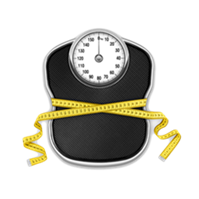Losing weight is a common goal for many people, but it can be a challenging process. There are many different approaches to weight loss, but some are more effective than others. In this article, we will explore the best ways to help you lose weight and keep it off.
- Set Realistic Goals
The first step in losing weight is to set realistic goals. It’s important to be honest with yourself about how much weight you need to lose and how quickly you can expect to see results. Setting unrealistic goals can lead to frustration and disappointment, which can make it more difficult to stick to your weight loss plan. - Keep a Food Diary
Keeping a food diary is an effective way to track your food intake and monitor your progress. It can help you identify areas where you need to make changes and make it easier to stay on track with your weight loss goals. Be sure to include all of the foods you eat, as well as the portion sizes and the times you eat them. - Eat a Balanced Diet
Eating a balanced diet is essential for weight loss. This means consuming a variety of foods from all of the food groups, including fruits, vegetables, whole grains, lean proteins, and healthy fats. Aim to eat three meals a day, and include snacks if needed. Avoid skipping meals, as this can lead to overeating later in the day. - Exercise Regularly
Exercise is an important part of any weight loss plan. It helps to burn calories, boost metabolism, and build muscle. Aim for at least 30 minutes of moderate-intensity exercise most days of the week. This can include activities such as brisk walking, jogging, cycling, or swimming. Strength training exercises, such as lifting weights, can also be beneficial for building muscle and increasing metabolism. - Get Enough Sleep
Getting enough sleep is important for weight loss. Lack of sleep can disrupt hormones that control hunger and appetite, making it more difficult to stick to a healthy eating plan. Aim for at least seven hours of sleep each night, and try to establish a regular sleep schedule. - Drink Plenty of Water
Drinking plenty of water is important for weight loss. It helps to flush toxins out of the body and can help to reduce hunger and cravings. Aim to drink at least eight glasses of water each day, and avoid sugary drinks such as soda and juice. - Avoid Processed Foods
Processed foods are often high in calories, sugar, and fat, and can contribute to weight gain. They can also be high in sodium, which can lead to water retention and bloating. Aim to eat whole, unprocessed foods as much as possible, and avoid foods that are high in sugar and fat. - Practice Mindful Eating
Mindful eating is an effective way to help you lose weight. It involves paying attention to your food and your body’s signals of hunger and fullness. This can help you to eat more slowly, enjoy your food more, and avoid overeating. Try to eat in a calm and relaxed environment, and avoid distractions such as television or your phone. - Get Support
Getting support from friends and family can be helpful for weight loss. They can provide encouragement, accountability, and motivation. Joining a support group or working with a registered dietitian or personal trainer can also be beneficial. - Be Patient
Finally, it’s important to be patient with yourself during the weight loss process. It takes time to lose weight and establish healthy habits. Don’t expect to see results overnight, and be prepared for setbacks along the way. Celebrate your successes, no matter how small, and keep moving forward towards your goals.
In conclusion, losing weight can be a challenging process, but there are many effective strategies that can help you achieve your goals. Setting realistic goals, keeping a food diary, eating a balanced diet, exercising regularly, getting enough sleep, drinking plenty of water, avoiding processed foods, practicing mindful eating, getting support, and being patient are all key components of a successful weight loss plan.
It’s important to remember that everyone’s journey to weight loss is different, and what works for one person may not work for another. It’s also important to consult with a healthcare professional before starting any weight loss program, especially if you have any underlying health conditions or are taking medications.
In addition to these strategies, there are some other tips and tricks that can help with weight loss. These include:
- * Eating protein with every meal: Protein is a filling nutrient that can help to reduce hunger and cravings.
- * Eating slowly: Eating slowly can help you to enjoy your food more and feel full faster.
- * Drinking green tea: Green tea contains caffeine and antioxidants that can boost metabolism and aid in weight loss.
- *Practicing stress-reducing activities: Stress can contribute to weight gain, so practicing stress-reducing activities such as yoga or meditation can be helpful.
- *Tracking progress: Tracking progress can help you to stay motivated and see how far you’ve come.
Incorporating these tips into your weight loss plan can help to boost your results and make the process more manageable.
It’s important to note that weight loss is not the only measure of health. It’s also important to focus on overall health and wellness, including getting regular check-ups with your healthcare provider, managing stress, and incorporating other healthy habits into your life.
In conclusion, losing weight can be a challenging process, but it’s possible with the right strategies and mindset. By setting realistic goals, eating a balanced diet, exercising regularly, getting enough sleep, drinking plenty of water, avoiding processed foods, practicing mindful eating, getting support, and being patient, you can achieve your weight loss goals and maintain a healthy lifestyle. Remember to consult with a healthcare professional before starting any weight loss program and focus on overall health and wellness rather than just the number on the scale.







